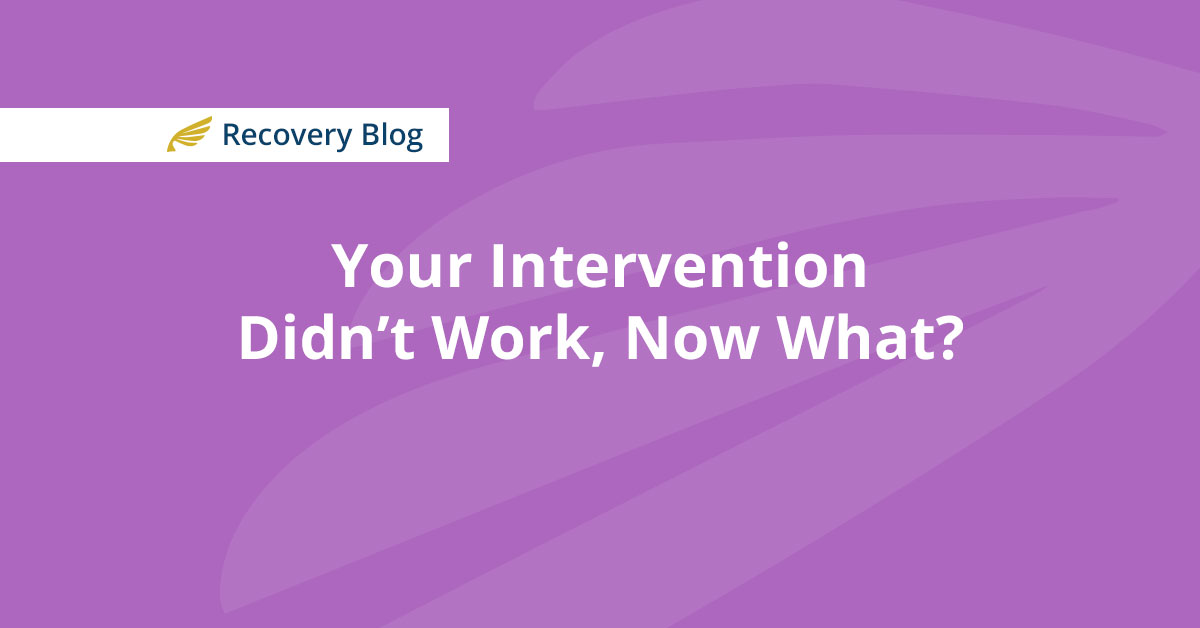How to Love an Addict Without Enabling
When your loved one is struggling with an addiction, it is only natural to want to try and help...

Everyone involved had hoped that your loved one would agree to get help and begin the healing process, but they weren't ready. Tempers flared and feelings were hurt. Either they refused to get any treatment, agreed to get treatment and then changed their mind, or left treatment early. Whatever the outcome was, the bottom line is that your plan didn't work.
Although many families feel tempted to toss in the towel after a failed intervention, don't. Sometimes it takes more than an intervention to get a loved one to engaged with the addiction treatment program that works for them.
 A failed intervention isn't all bad news. You likely learned a lot about substance addiction when you were preparing to stage the intervention and now you can approach your loved one with more understanding and compassion than you did before. Hopefully you have learned that their addiction is not simply a ‘poor choice’ that they make repeatedly but is part of a larger problem. You may also now be aware that there are other mental health conditions that are co-occurring and should also be addressed.
A failed intervention isn't all bad news. You likely learned a lot about substance addiction when you were preparing to stage the intervention and now you can approach your loved one with more understanding and compassion than you did before. Hopefully you have learned that their addiction is not simply a ‘poor choice’ that they make repeatedly but is part of a larger problem. You may also now be aware that there are other mental health conditions that are co-occurring and should also be addressed.
While your intervention didn’t result with anyone entering rehab, you should not be discouraged. Instead of being mad or disappointed, which are common feelings for all people involved in the intervention, now is the time to offer your love and support. Your loved one needs to know that you still love them, even if you can’t support their current path.
If your loved one refused to get professional help, it may be simply because they weren't ready.
Interventions can quickly turn into ugly, angry, hurtful confrontations, and the damage can linger long after. Even if your loved one is not ready for addiction treatment, you can take the first step and talk to a qualified therapist to work through any feelings of anger, resentment or disappointment that you may have after the failed intervention. Working with an addiction therapist may also enable you to develop the skills to help your loved one in your home, and also to identify any codependency behaviors that you have developed that are enabling your loved one. Joining community groups like Nar-Anon can also help you better understand how you can make a difference even when you’re feeling helpless.
It’s important to remember that you’re not alone. You haven’t exhausted all options when an intervention fails and there is still hope that your loved one will work through this on her own time.
When your loved one is struggling with an addiction, it is only natural to want to try and help...
One of the challenges for friends, family members, and loved ones of those addicted to drugs and/or...
What is the best way to show support to an addicted loved one? Some believe that tough love is the...